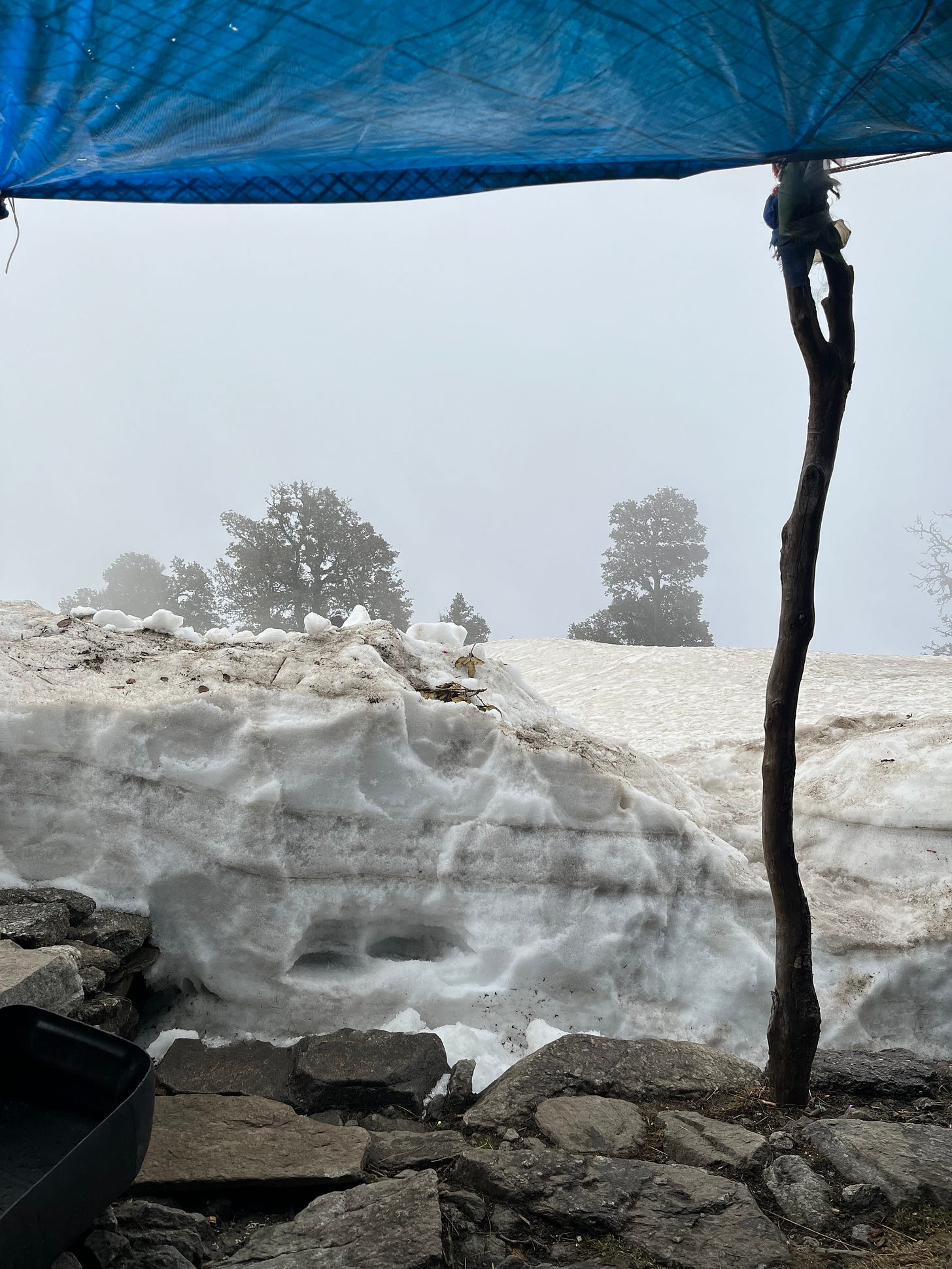This flash essay is part of a collaborative, constrained-writing challenge undertaken by some members of the Bangalore Substack Writers Group. Each of us examined the concept of ‘TIME’ through our unique perspective, distilled into roughly 400 words. At the bottom of this snippet, you’ll find links to other essays by fellow writers.
My day starts at 6.30 AM when the alarm goes off. It doesn't care for the sun - already out if its summers or still hiding behind the horizon in winters. In about an hour, I would be making an attempt to sit with a pen and journal after I've returned from my 30 min morning run. 10 AM onwards, I'll sit down to work for a few hours till the evening, punctuated by coffee and lunch breaks to finally welcome the night for indulgences pushed towards the end of the day. Reading a book, watching cinema or if I can get myself ready, do something expressive.
Failing to adhere to the time blocks feels like missing a train. Time seems to keep moving ahead relentlessly, waiting for none and stopping for not even a second to pause. Where is it going? I sometimes wonder. And why do I feel like I'm tied to it with a rope? What does 'losing time' mean?
Underscoring all of this is the linear foundation of time as we know it today. It's a recent invention. And probably only limited to humans. It dictates how much time we spend on different tasks, the schedules we follow and the routines we live by. We live by a time table.
Before time as we know it existed, we lived to the rhythms of nature. The cyclical arrival and passing of seasons, the daily alternating dance of the sun and the moon, the circadian rhythms of our bodies. Intervals were measured through burning candles and seeping sand in an hourglass. Time seemed more cyclical and the low granularity of it didn't give birth to the illusion of it 'running away'. Consider a 100m cruise passing by instead of 100 1-metre boats.
Over time, as the civilisations expanded in numbers and geography and the need for coordination grew, the mechanical clock came running around the 14th century as the one-stop solution for operating everyone of us as efficiently as possible. The mechanical clock became the heartbeat of commerce. Labour was dictated by the work bell. From what was a very personal experience, time transformed into a public one, making us dance to it. This is mirrored in Carlo Rovelli's insight about time - something which takes birth from the conscious, far from being a universal construct. It explains why my tightly scheduled days feel full of friction while timeless mornings expand with endless possibilities.
As I wake up the next day to the first light of the sun, I swing on this pendulum of dual perception of time. Instead of the clock digits flashing in front of my eyes, I now run to shifting lights, changing weathers and ever dynamic bodily rhythms.
Here’s a list of other ‘TIME’less pieces by other Bangalore Substack Group writers:
“So… When will shit actually hit the fan?” by Sailee, sunny climate stormy climate
Time: I Just Want to See It, Watch It Move by Abhishek Singh, The Comic Dreamer
Timekeepers - Retracing the Universe’s Deep-Time Signatures by Devayani Khare, Geosophy
Keeping Time by Reshma Apte, Fanciful Senorita
Locating Myself In The Map of Time by Priyanka Sacheti, A Home For Homeless Thoughts
The Thing We Pretend To Understand by Avinash Shenoy, OfftheWalls
Lessons Time Taught Me by Aryan Kavan Gowda, Wonderings of a Wanderer
A Time for Worship by Vaibhav Gupta, Thorough and Unkempt
“Tata Mummy Tata” by Rakhi Anil, Rakhi’s Substack
The vicious cycle of sixteen - A dancer’s take on keeping time by Eshna Benegal, The Deep Cut
How long is twenty years? by Richa Vadini Singh, Here’s What I Think
How mystery writers play with the clock by Gowri N Kishore, About Murder, She Wrote
TIME INFLATED, JUSTICE DEFLATED. by Lavina G, The Nexus Terrain
What keeps the fool in me delighted by Rahul Singh, Mehfil
The endless ebb and flow of Time by Siddarth RG, Siddarth’s Newsletter
Time, please! by Shaili Desai - Litcurry



Loved this writeup Siddharth! The struggle to balance the material focused “life” that we live and the experience focused “living” that we aspire to is so real! Thank you for describing it so beautifully!